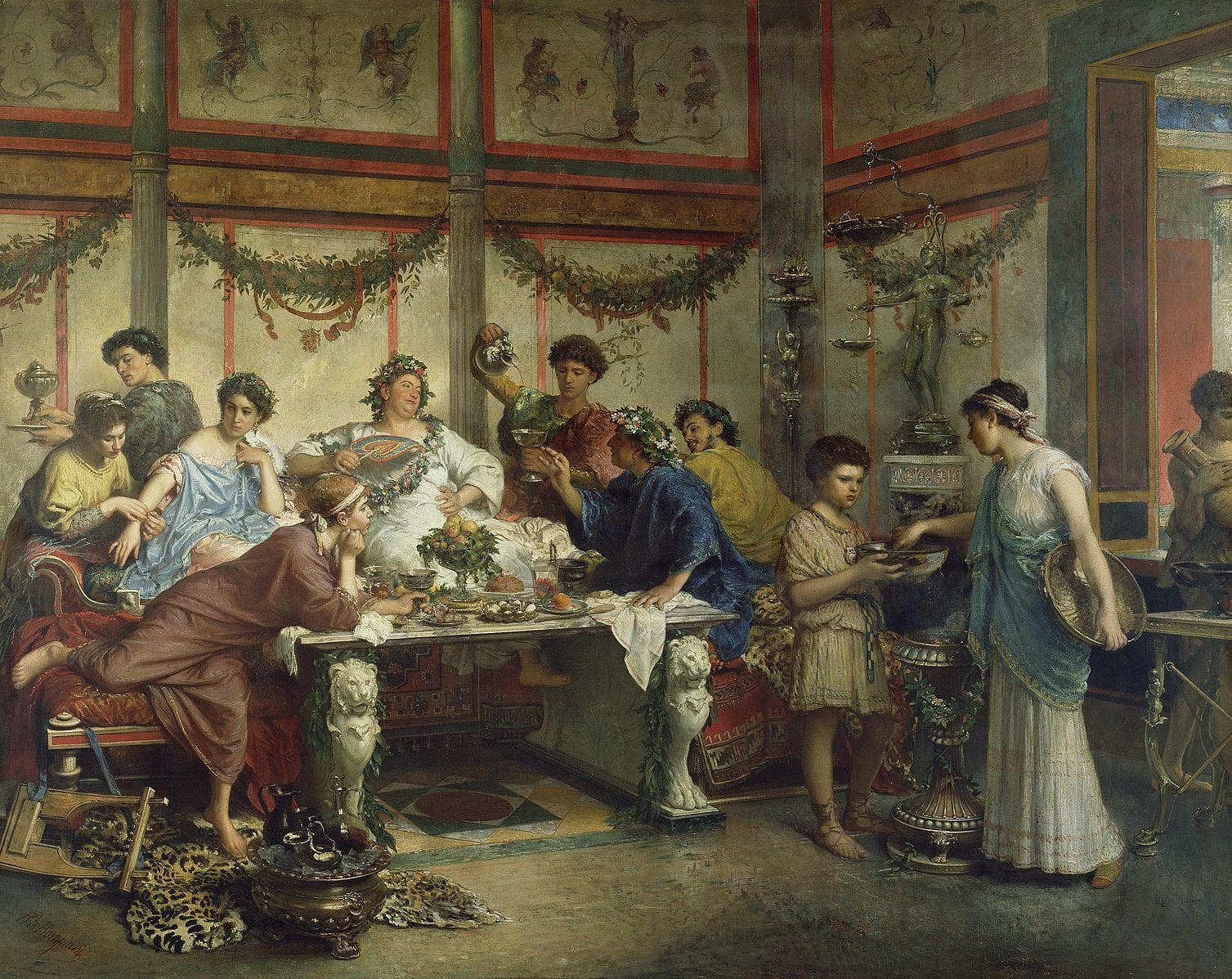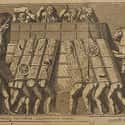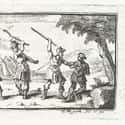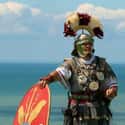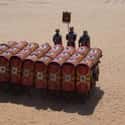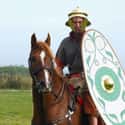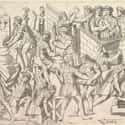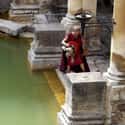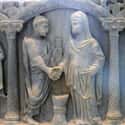-
(#1) Soldiers' Service Was Long, But Rewarding
If you wanted to join the Roman army, you were in it for the long haul. The typical Roman soldier served for a whopping 25 years, often running from the time they were 18 until they had reached their mid-40s.
However, soldiers who survived found themselves set for life. The emperor granted all retired soldiers land of their own and a lifetime pension. In times of peace, this was downright lucrative, but the retirement benefits were so good that even during war, many men didn't hesitate to sign up.
-
(#2) Being A Soldier Was Still Better Than Most Other Jobs
Despite all the blood and brutality, the average Roman soldier lived a better life than most in the Empire. Many civilian jobs were unstable, with pay rates negotiated for every single gig. As a soldier, you could always rely on steady pay, and you often had easy access to facilities civilians struggled to have access to.
Bakeries, hospitals, and baths were a part of most barracks, and even broke soldiers could use them for free. The land a soldier earned after retirement was incredibly attractive, because Romans were often living cramped lifestyles in the city.
-
(#3) Small Mistakes Got You Beaten, Big Mistakes Got You Killed
Soldiers judged disobedient, cowardly, or grievously incompetent by their commanders faced strict and sometimes cruel punishment. Centurions, who led the legions, carried canes used to strike soldiers to enforce their will or tighten up a sloppy march. Small mistakes could lead to beatings or prison time.
One particular centurion name Lucilius was known as "Another Here" because he beat his soldiers so severely he needed multiple canes for a single punishment. It's not very surprising that Lucilius was offed during the Pannonian Mutiny.
Larger mistakes resulted in more severe punishment, including execution. One particularly grisly punishment, decimation, meant 10% of your unit was simply, somewhat arbitrarily killed. Most infamously, general Marcus Licinius Crassus ordered 500 soldiers decimated for cowardice in the Gladiator Wars. Every group of 10 drew lots, and the unlucky soul who got the short straw was bludgeoned by their nine close comrades.
-
(#4) They Carried Mighty Weapons
Roman legionaries armed themselves to the teeth with heavy battle equipment. Every soldier wore iron armor and a metal (usually iron or bronze) helmet over a wool tunic. Their scutum shields added the most weight, but they provided both protection and an iron knob for bashing the enemy.
The pilum - a large spear designed to be tossed before the start of close combat- was the Roman soldiers' primary weapon. If forced into a tight situation, their gladius swords proved excellent stabbing weapons. Legionaries almost never carried ranged weapons - those were used primarily by specialized auxiliaries.
-
(#5) Signing Up Was A Battle In Itself
Recruiters in the Roman army could afford to be choosy. Recruits endured a battery of medical and athletic tests to ensure they were already fit to fight. Basically, they wanted men who didn't need a great deal of physical training before they entered the battlefield.
Recruits also had to prove they were of Roman birth to be a Legionary, but both legionaries and auxiliaries were required to be freeborn. If an enslaved person was discovered to have enlisted, those responsible were slain. If you met all the necessary requirements, you were finally allowed to swear an oath of loyalty to the emperor and head off to the barracks.
-
(#6) They Were Experts At Battlefield Tricks and Tactics
Roman generals and tacticians devised formations and strategies that were infamous throughout the world. The standard formation was known as the triplex acies, three lines of warriors arranged like a chessboard, spaced out to allow easy throwing of the pilum and free use of the gladius while tight enough to repel enemy offensives.
The scutum shield was key to many powerful defensive formations, such as forming a hollow square to repel cavalry or an overhead shell to protect from arrows and spears. The Romans also used cleverness to their advantage between battles, training some of the first messenger pigeons to deliver information from spies and digging hidden trenches in the night so the enemy's horses would fall inside.
-
(#7) At First, They Rarely Used Siege Weapons, But They Eventually Became Masters
Romans were surprisingly slow to integrate siege weapons into their armies. They often assembled and devised artillery based on Greek designs, and only iterated as necessary. However, after Julius Caesar's success with siege engines at Alesia, the devices became a powerful and well-integrated part of the Roman arsenal.
The most famous Roman siege weapon, the ballista, hurled massive stones and was known as the onager - or the wild ass - for their incredible kickback after firing. Smaller ballista designed to fire heavy bolts were known as carroballista, or scorpio (scorpions).
-
(#8) Soldiers Didn't Receive Equal Treatment
Unfortunately, if you weren't a citizen of the Roman Empire, you failed to reap all the benefits of serving. Roman citizens became legionaries, but non-citizens had to become auxiliaries. These forces weren't as well-respected, didn't earn as much pay, and instead of land and a pension, got a military diploma granting them and their offspring Roman citizenship.
Additionally, soldiers from influential families were often promoted faster, and older men ordered the younger soldiers to take the most dangerous positions on the front lines.
-

(#9) Treating The Enemy Cruelly Was Expected
Despite the Empire's size, the Romans often did not integrate well with their new subjects. If a tribe or kingdom fought them fiercely or forced them into siege, only women and children had some hope of surviving once the land was captured. Even alliances with foreigners were seen as temporary.
When the Celtic king Prasutagus died, leaving ally Emperor Nero half his estate, the Romans responded by taking control of his kingdom and brutally punishing his rebellious family. Romans regarded those dwelling in their Empire without Roman citizenship as subaltern, and they were subject to especially gruesome and horrific punishments like crucifixion.
-
(#10) They Were More Often Laborers Than Warriors
On average, Roman soldiers lived a mundane and hardworking existence. Some took up specialties, filling in as doctors, bakers, potters, and blacksmiths when the barracks needed them. At one time or another, soldiers were put to work on the infrastructure of the Empire.
At peace, leaders of the Legion became administrators, overseeing the construction of roads, bridges, and aqueducts built by soldiers' hands.
-
(#11) They Had To Clean Toilets And Baths
Roman barracks were essentially small cities, and like any city they needed daily upkeep and maintenance. Soldiers were put to the dirtiest and most mundane tasks like cleaning boots, replacing old pipes, and scrubbing the walls of the baths. The worst of these jobs was latrine duty.
On any given day, a Legionary could find himself cleaning feces out of blocked pipes and emptying full latrine pits.
-
(#12) No One Was Allowed To Marry
From the time a soldier's service started until it ended, they were not allowed to marry. Any distraction from the service of the Empire was discouraged, which helps explain their relatively comfy living conditions.
Of course, this didn't stop soldiers from sneaking off and taking unofficial wives and girlfriends from the nearby towns. The high-ranking centurions were also an exception to the rule, and had the privilege of marrying while serving. When Septimius Severus took power in 193 CE, this rule was eventually overturned.
-
(#13) Gaius Marius Reformed The Roman Army Into History
Much of the Roman army's legendary success wouldn't have been possible if Gaius Marius hadn't been elected consul in 107 BCE. Before his attention turned to the Roman army, it was a loosely assembled group of volunteers who had other jobs and brought their own weapons.
Under the reforms of Marius, the army became the institution that could create awe. Among other decrees, Marius allowed citizens without property to enlist, supplied soldiers with arms and armor, and made being a soldier a true career.
New Random Displays Display All By Ranking
About This Tool
Over the centuries, the Roman Empire conquered almost all of Europe, and generations of Romans left blood and sweat on the battlefield. From the cold swamps of Britannia to the scorching deserts of Carthage, the notorious Roman army invaded and occupied large tracts of land. This is their most glorious peak period in human civilization.
The ancient Roman army evolved from the compulsory military system to the professional military system, and technology also developed rapidly due to military needs. There are many savage and terrible things on the front lines of the brutal and chaotic war. The random tool introduces 13 details about what it was like to be on the front lines of an ancient Roman battle.
Our data comes from Ranker, If you want to participate in the ranking of items displayed on this page, please click here.






